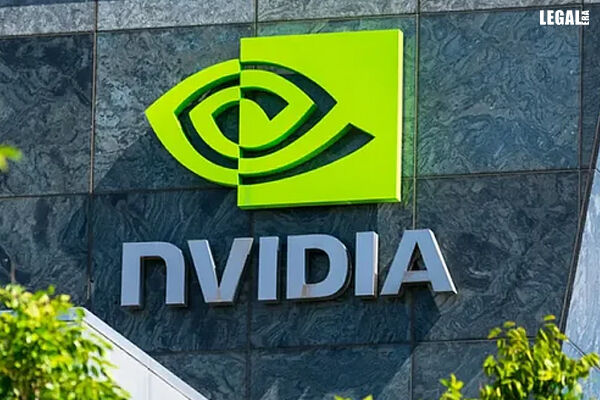
Nvidia makes history amidst rise in global AI; marks $5 trillion valuation
Its advanced chips have been a turning point in the tech rivalry between the U.S. and China
American technology company, Nvidia has secured a place in history books as the first company to reach a market value of $5 trillion, amid the rise in global artificial intelligence (AI).
The watershed moment came merely three months after the company breached the $4 trillion mark, surpassing the total cryptocurrency market value.
The Wall Street achievement highlights Nvidia’s swift evolution from a niche graphics-chip designer into the backbone of the global AI industry. While catapulting CEO Jensen Huang into a Silicon Valley icon, it has made the firm’s advanced chips a turning point in the tech rivalry between the U.S. and China.
Since the launch of ChatGPT in 2022, the Santa Clara, California-based company’s shares have climbed 12-fold as the AI frenzy propelled the S&P 500 to record highs. It ended Wednesday’s session up 3 percent at $207.04, giving it a stock market value of $5.03 trillion.
This led to a debate on whether frothy tech valuations could lead to the next market bubble.
Matt Britzman, senior equity analyst at Hargreaves Lansdown, which holds shares in the company, remarked, “Nvidia hitting a $5 trillion market cap is more than a milestone; it’s a statement, as the company has gone from chipmaker to industry creator. The market continues to underestimate the scale of the opportunity, and Nvidia remains one of the best ways to play the AI theme.”
Meanwhile, President Donald Trump is likely to discuss Nvidia’s Blackwell chip with Chinese President Xi Jinping during their meet. Due to Washington’s export controls, the sales of the high-end chip have been a stumbling block between the two entities.
Recently, Nvidia’s CEO Huang announced $500 billion in AI chip orders, stating that he plans to build seven super computers for the U.S government.
His stake in Nvidia would be worth $179.2 billion, and as per Forbes‘ billionaire list, he is the world’s eighth-richest person.
Born in Taiwan and raised in the United States from age nine, Huang has led Nvidia since its founding in 1993. Under his leadership, the company’s H100 and Blackwell processors have become the engines behind large-language models powering tools such as ChatGPT and Elon Musk’s xAI.
Even as Nvidia remains the front-runner in the AI race, Big Tech peers Apple and Microsoft have also reached $4 trillion in market value in recent months.
According to analysts, it reflects investor confidence in unrelenting AI spending, though some warn valuations may be stretched.
As Matthew Tuttle, CEO of Tuttle Capital Management, stated, “AI’s current expansion relies on a few dominant players financing each other’s capacity. The moment investors start demanding cash-flow returns instead of capacity announcements, some of these flywheels could seize.”
Tech companies’ heavy weighting in the S&P 500 and Nasdaq gives them broad influence over global markets.
Meanwhile, Nvidia, which will report its quarterly results on 19 November, has drawn global regulatory scrutiny, with U.S. export curbs.
Commenting on the matter, Bob O’Donnell of TECHnalysis Research, said, “Nvidia brought its story to D.C. to both educate and gain favor with the U.S. government. It managed to hit most of the hottest and most influential topics in tech.”
The recent developer conference served as a platform for the company’s founder to walk a geopolitical tightrope. Huang praised Trump’s ‘America First’ policies for accelerating domestic tech investment. However, he warned that excluding China from Nvidia’s ecosystem could limit U.S. access to half of the world’s AI developers.
While it remains the industry’s top choice, Nvidia’s rivals, including Advanced Micro Devices, and other well-funded startups, are set to challenge its dominance in high-end AI chips.